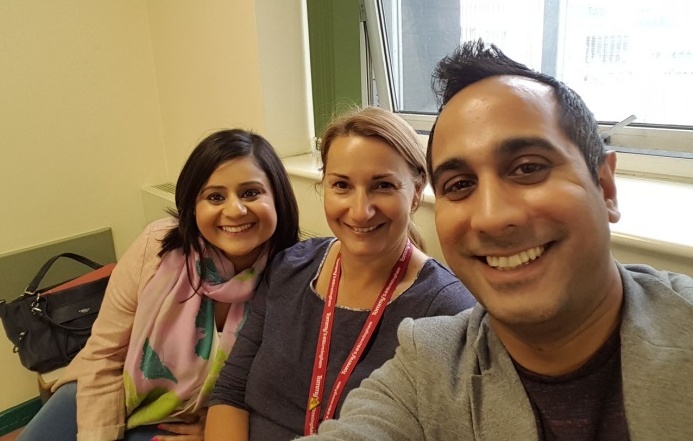Research giving hope to couples enduring multiple miscarriages has moved forward thanks to the support of donors to the University's miscarriage appeal.
Funds raised by generous supporters have been allocated to two innovative projects running at the Tommy's National Centre for Miscarriage Research.
Centre Director Professor Arri Coomarasamy says: 'We're incredibly grateful to everyone who supported the appeal. Your donations are helping us to translate research into patient care faster by helping to provide the scientists and equipment we need to accelerate progress.'
 A team led by Dr Jackson Kirkman-Brown is assessing how damage to sperm DNA increases the risk of miscarriage. Diagnostic work on sperm samples is now underway in the lab. The next step will be to trial a therapy for men similar to a dietary supplement that will aim to repair the damage.
A team led by Dr Jackson Kirkman-Brown is assessing how damage to sperm DNA increases the risk of miscarriage. Diagnostic work on sperm samples is now underway in the lab. The next step will be to trial a therapy for men similar to a dietary supplement that will aim to repair the damage.
Around half of all early miscarriages are caused by chromosomal abnormalities, but sometimes it is difficult to collect pregnancy tissues for chromosomal testing. Dr Stephanie Allen's team is analysing blood samples to see if diagnosis may be possible with non-invasive tests, which could be used in the future to determine the risk of miscarriage before it happens. They are also looking at the possibility of other smaller genetic abnormalities not detected by current testing methods contributing to some cases of pregnancy loss.
Tommy's Centre continues to offer couples hope through practical, compassionate support and research. After three miscarriages, Narinder and Aman Hardawa welcomed their son Veerun to the world in September.
Narinder says: 'Words cannot express how we have appreciated the support of Tommy's recurrent miscarriage care and research team to build our family. We will be eternally grateful. Small things made the greatest difference: holding hands, listening, just being there. Thank you.'
Alumni and friends have raised more than £62,000 for miscarriage research so far. To join them and help couples like Narinder and Aman, please contact our development team.
Picture: Narinder and Aman Hardawa with research midwife Debbie Bullen